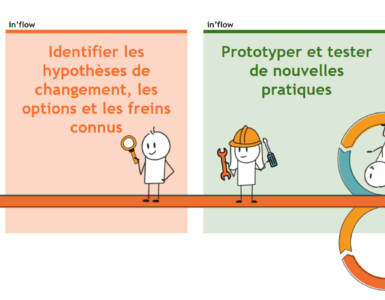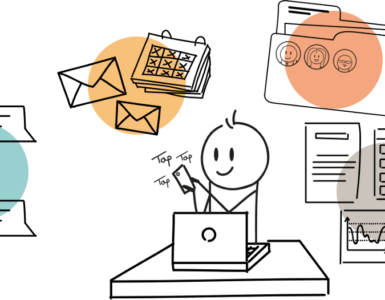First and foremost, if you have no idea on earth of what “emotional intelligence” is, here is your chance to get it solved out. According to the Dictionary of Psychology, it is “the ability to recognize one’s own and other people’s emotions, to discriminate between different feelings and label them appropriately, and to use emotional information to guide thinking and behavior”.
Some years later, Mayer defined it this way:
“From a scientific standpoint, emotional intelligence is the ability to accurately perceive your own and others’ emotions; to understand the signals that emotions send about relationships; and to manage your own and others’ emotions”.
Roughly speaking, emotional intelligence puts forward a bunch of key human qualities, including:
- Self-awareness
- Self-regulation
- Motivation (in that definition, motivation goes beyond the notion of money, of course)
- Empathy for others
- Social skills (relationships & networks)
It took almost a decade after the first definitions emerged for the psychologist Daniel Goleman to link emotional intelligence to business leadership.
Feeling “things” is biological and mental: there’s nothing much we can do against it. Any healthy human beings have an inner stream of thoughts and feelings including criticism, doubt or fear. That’s just our healthy minds doing the job they’re aimed to: anticipating issues.
What would result the lack of one of a key quality of emotional intelligence, like self-awareness for example? Well, easy. Lacking of it means that you have no understanding whatsoever of your own motivations and aspirations. In that way, you’re almost unlikely to understand other’s. Beyond that, it will mess up with and confuse your rational thinking.
Let’s dig a little deeper into the neurological area to have a better understanding of what’s happening in the brain. As you may know it, the human brain is divided into two parts: the right part more entitled to give us the ability to be creative, sensitive to music, to understand metaphors and most importantly expressing, feeling and reading emotions. The left part – on the other hand – covers language skills, mathematics, logic and analytics.
What’s fascinating is that the emotional and the rational hemispheres of the brain are constantly fighting for control.
Emotional intelligence is thus the act of bringing intelligence to our emotions, involving ideally – neurologically speaking – that these two minds have to work together like a team, to “feed each other”: our feelings would alert the rational mind, and the rational mind would try its best to refine the input of our emotions. When these two team up, both emotional intelligence and intellectual ability will be stronger.
Emotional intelligence is also this great ability to use emotions to ease problem solving.
There’s a very common belief saying that showing too much of emotions in the workplace is bad and is strongly NOT encouraged. Let’s not jump to conclusions and agree that it is ok to let anyone know that you’re anxious or insecure over some jealousies to people’s success or skills, or to completely lose it in the open space on the fear of failing etc.
A very concrete flaw going on the opposite direction of emotional intelligence’s: denial. Ask around you and you’ll see that a lot of people will use denial as a springboard to succeed and get through rough patches. We deny that we are stressed out, we deny we are scared, we deny how badly we want to succeed, and most importantly we deny that we are in complete denial. We deny so much that we can’t recognize the truth right in front of our faces. And THAT, is the bottom line.
To my point of view, effective leaders do not rule the world in denial: i.e. they brighty know how to position themselves between showing off too much of the right brain and living in denial. They do not suppress their inner emotions: they externalize them smartly — and this is what we call “emotional agility”. Countless studies prove that emotional agility is gold to reduce stress, anxiety, leverage innovation and improve performance.
How Emotional Intelligence is “Feeding” Leadership
Leaders putting into practice emotional intelligence have an easier time reaching and achieving goals than those who don’t. Let’s have a simple look at what differentiates an average boss from a smart leader.
- A boss drives others; a leader coaches them until they give the best of themselves.
- A boss uses fear to manage; a leader drives with enthusiasm.
- A boss puts the blame others; a leader repairs the damages and understands what’s happened in the first place so it won’t occur again.
- A boss thinks about their profits; a leader thinks “we”.
- A boss knows how things get done; a leader shows how to proceed.
- A boss depends on his / her own authority; a leader believes in mutual trust within teams.
- A boss uses people; a leader is interested in helping them grow.
- A boss takes all the credit; a leader empowers others.
- A boss is a commander; a leader asks and listens.
A boss is a leader deprived of emotional intelligence: while busy at empowering their team members, leaders get a full sense of his/her emotions. As leaders or leaders-to-be, we have to know, understand and respond to emotions. Beyond that – in the communication sphere – we have to be wide-aware of the weight of our words, actions because it does affect others’ and moreover, be ok with the consequences they may have.
Whether it is in our current organizations or in our past experiences, we’ve all been confronted to communication deficiencies leading to distress and doubts. That is often typically the result of a leadership’s lack of emotional intelligence.
The Role of Emotional Intelligence in Organizations
Many research show that emotional intelligence also influences how workplaces will perform well or not. It is the leaders’ role to create the conditions that directly determine people’s ability to 1/ work well 2/ feel well.
Also, if we have a deep look at success factors influencing organizations’ effectiveness, we’ll of course notice that it plays a huge role. The workplace is the ideal environment where employees can develop their social and emotional potential when confronting important challenges, like:
- Being able to deal with massive change smoothly.
- Learning how to be more creative to play a key role in innovation projects.
- Being able to manage a lot of information in a limited time.
- Feeling motivated and committed all over again.
- Excelling at team building.
- Flagging talents and train them better.
- Identifying potential leaders and get them well-prepared for what’in the box for them.
In that context, an organisation showing emotional intelligence usually benefits from employees being motivated, productive, aligned with the business, happy, and well-rewarded (i.e acknowledged for their value, empowered for their brilliant skills).
Finally, we all know that to leverage its spirit of excellence, the only area that needs to be addressed by any single organization, is how well its people want to work together.




